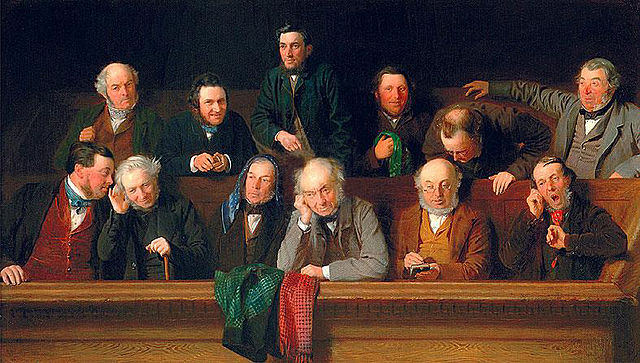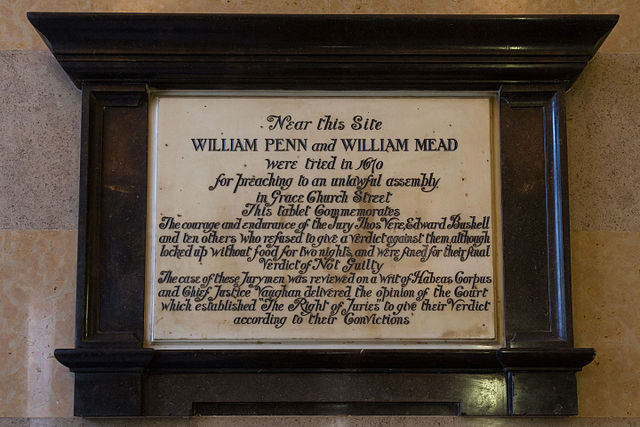Jury nullification (US/UK), jury equity (UK), or a perverse verdict (UK) occurs when the jury in a criminal trial gives a not guilty verdict regardless of whether they believe a defendant has broken the law. The jury's reasons may include the belief that the law itself is unjust, that the prosecutor has misapplied the law in the defendant's case, that the punishment for breaking the law is too harsh, or general frustrations with the criminal justice system. Some juries have also refused to convict due to their own prejudices in favor of the defendant. Such verdicts are possible because a jury has an absolute right to return any verdict it chooses.
A 19th-century jury
Even prior to Bushel's Case, Sir Nicholas Throckmorton, a non-Episcopalian English Dissenter, or Nonconformist, outside the established Church of England, was acquitted by a jury despite hostility of the judges.
Plaque at the Old Bailey
A jury is a sworn body of people (jurors) convened to hear evidence, make findings of fact, and render an impartial verdict officially submitted to them by a court, or to set a penalty or judgment.
An empty jury box at an American courtroom in Pershing County, Nevada
The Jury, an 1861 painting by John Morgan of a British jury, all of whom then had to be men
Notice mailed to summon a potential juror to a US court in 2007.
About 50 prospective jurors awaiting jury selection






